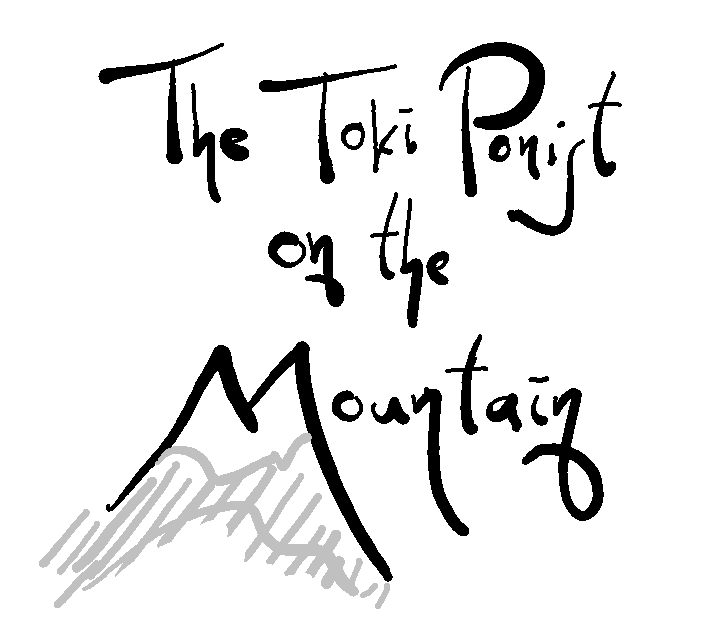nimi telo li ken ala telo.
The word for water cannot wash anything. — Toki Ponist Pu
July 2021
These are the words as recovered from the awoken well:
jan Pokami li jan pi kama sona pona.
ona li toki e ni tawa jan Sipi: o pana e sona pi nimi sin.
jan Sipi li toki e ni: pona. yupekosi.
jan Pokami li toki e ni: yupekosi li seme?
jan Sipi li toki e ni:
ona li toki e ni:
mi pali e nimi sin kin.
ni li nimi tonsi. mi tonsi!
jan Pokami li toki e ni:
Here follows a relaxed translation:
Tipi visits a school.
Pokami is an eager student.
He asks Tipi: “Teach me a new word!”
Tipi says: “Ok. yupekosi.”
Pokami asks: “What does it mean?”
Tipi says: That is what you need to learn for yourself.”
Pokami is not impressed: “That is bullshit. I will create a word that is useful: tonsi. That is who I am.
Tipi asks: “What does it mean?”
Pokami says: “It means non-binary, rejecting the classification of male and female.”
Tipi says: “No it is not. I rather learn it for myself.”
Associative musings:
Words can be verbs, but verbs are not actions. Words can be nouns but they are not objects in themselves. It sometimes happens that people mention things and then consider them done, as in “It is such a mess in here” or “Let’s be frank” or “Let’s discuss this over lunch”.
You can dive into words like you can dive into history, moving down the rabbit hole of meaning until you come to what you consider the actual root meaning of the word.
Etymology is the art of reducing all words back to their root meanings. But be aware that most people do not use the words in this manner, and so it often happens that people will try to induce what you actually mean by diving into the meaning of the words. This is one sure way of producing mass misunderstandings.
Nonetheless, it is a worthwhile pursuit to reconsider what you are actually saying if you consider the roots. By decoding your own words you can try to verify your thoughts. Extra credit when you do this by employing outlandish exotic or constructed languages.
The opposite direction is constructing new words. Here you deviate on purpose away from an existing root. It is fun and fine, but be aware that by launcing a new word in the air, you may be hiding in its newly cast shadow.
Read a newer koan (Existence is the best way to waste time.)
Read an older koan (In the present I feel pain. About the past I feel suffering. About the future I feel fear.)
